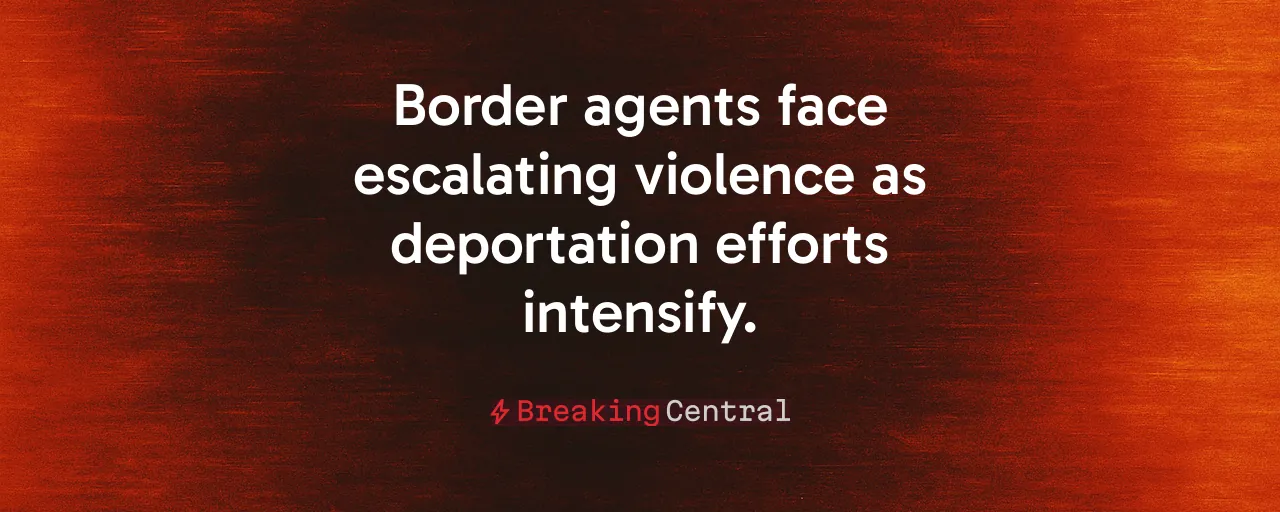A Dangerous Surge at the Border
Immigration and Customs Enforcement agents are under siege. A July 2025 White House report reveals a 700 percent spike in assaults on ICE personnel, with 79 incidents recorded in the first half of the year compared to just 10 in 2024. From Texas to Oregon, officers face gunfire, incendiary devices, and coordinated ambushes while enforcing immigration laws. These attacks, including a July 4 shooting in Alvarado, Texas, where an officer was shot in the neck, signal a troubling escalation in hostility toward federal agents.
The timing is no coincidence. As the Trump administration ramps up its deportation efforts, targeting millions for removal, opposition has grown increasingly aggressive. Violent incidents, like the July 7 rifle attack on a Border Patrol facility in McAllen, Texas, which injured two police officers and a federal employee, underscore the risks agents face daily. Protecting those tasked with securing its borders while upholding the rule of law presents a clear challenge for the nation.
This wave of violence demands attention. It represents a broader challenge to law enforcement's ability to operate safely. The attacks threaten officer morale and the nation's capacity to enforce immigration policies effectively. Without decisive action, the situation at the border could worsen significantly.
The Cost of Weak Enforcement
The data paints a stark picture. Department of Homeland Security records show assaults on ICE agents jumped from 10 to 79 between January and June 2025. In Alvarado, Texas, 10 suspects now face attempted murder charges after a coordinated ambush left an officer wounded. In Portland, Oregon, rioters used incendiary devices against federal agents, while a Los Angeles protest saw 1,000 demonstrators surround a federal building, slashing tires and blocking exits.
These incidents reflect a broader erosion of respect for law and order. When federal agents are targeted with such brazen hostility, it undermines the foundation of a secure society. Historical parallels, like the 2019 Tacoma detention center firebombing, illustrate the consequences when anti-enforcement rhetoric festers unchecked. Today's violence is a direct consequence of failing to confront these threats head-on.
The stakes are high. ICE's mission to detain and deport those who violate immigration laws is central to national security. With agents increasingly at risk, recruitment and retention suffer. A 2025 DHS report warns of declining morale among officers, many of whom fear for their families' safety due to doxxing threats. Without robust support, the agency's ability to function could falter.
Prioritizing Officer Safety
Protecting ICE agents requires immediate action. One critical measure is preserving their anonymity during operations. Masks and other identity-shielding tools prevent doxxing, which has become a real threat in an era of online harassment. A 2025 Senate hearing highlighted cases where agents' personal information was leaked, leading to targeted threats against their families. Anonymity ensures officers can perform their duties without fear of retaliation.
Increased funding is another priority. ICE's proposed $18 billion budget for 2026 would expand body armor, rapid-response teams, and detention capacity. These resources are essential for agents facing armed assailants and large-scale protests. Zero-tolerance prosecution for attacks on federal officers sends a clear message: violence against law enforcement will face severe consequences. The 10 defendants charged in the Alvarado ambush are a start, and further accountability is necessary.
Restoring Law and Order
Beyond immediate protections, the nation needs a broader commitment to law and order. Congressional action could strengthen penalties for doxxing and condemn rhetoric that incites violence. While free speech is sacred, words that embolden extremists to attack federal agents cross a dangerous line. Bipartisan agreement on this point could help de-escalate tensions without stifling debate.
Historical context offers lessons. The 2003 creation of ICE followed 9/11, when national security demanded a unified approach to immigration enforcement. Resistance peaked in 2018 with the 'Abolish ICE' movement, but today's violence is unprecedented. The Trump administration's 2025 deportation quotas reflect a return to prioritizing border security, but they've sparked backlash that requires careful management to avoid further escalation.
A Balanced Path Forward
Addressing this crisis involves considering legitimate concerns. Some argue ICE's tactics, like mass raids, strain community trust. A 2025 House poll found 54 percent of adults believe ICE has overreached. These critiques warrant discussion, but they do not justify violence. Solutions like encrypted badge numbers could balance transparency with officer safety, allowing oversight without exposing agents to harm.
Community-liaison programs offer another way forward. Local officials could observe raids in real time, ensuring accountability while preserving operational security. These measures, paired with targeted enforcement focused on violent offenders, could reduce tensions without compromising border security. The aim is to protect agents, enforce laws, and maintain public trust.
The Bigger Picture
The attacks on ICE agents are a symptom of a deeper divide over immigration and national security. Restoring order requires both resources and resolve. Lawmakers, communities, and citizens have a responsibility to support those who risk their lives to secure the nation's borders. Failing to act risks emboldening further violence and weakening the rule of law.
The path ahead is challenging, yet achievable. By prioritizing officer safety, strengthening enforcement, and fostering accountability, the nation can address this crisis while upholding its values. ICE agents deserve support for their work. Their safety is a cornerstone of a secure and orderly society.
As the debate over immigration continues, one truth remains: no one benefits from chaos. Protecting those who enforce the law is a moral imperative, not merely a policy choice. Action is needed now, before the next attack claims more lives or erodes the nation's foundation further.
